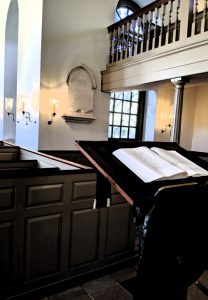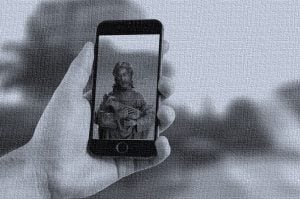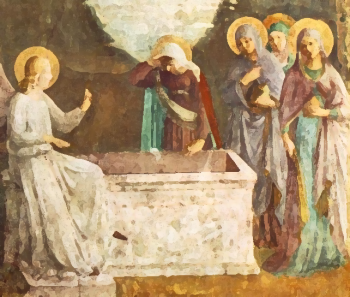
The Pew Research Center recently published an updated report, In US, Decline of Christianity Continues at a Rapid Pace. This annual report tracks the continuing decline in religious affiliation and church membership in the US. The fasted growing group in the US is now “none” when it comes to religion. Christians in particular are down 12 percentage points in the US over the past decade.
A number of related, and anxious, opinion articles quickly followed. The US has always been thought of as very religious in general, especially compared to its European neighbors, and thought by many to be Christian in particular. So, this news is disconcerting to nearly all in the faith.
How bad is it?
The headline fragments alone give an indication of the depth of the consternation, discomfort and soul searching these statistics provoke in the thoughtful and faithful on both left and right.
Christianity as we know it is dying… is by The Rev. Amy Butler, a leading member of the mainline Christian clergy. This is an S.O.S published on the Religion News Service. From her perspective, we need to radically redefine what it means to be and act like Christians to slow if not reverse this rapid decline. Christianity needs to be reborn as it were: less institutionally protective and more socially pro-active. She welcomes a new life in Christ as perhaps Christ himself might live.
We’re Less and Less a Christian Nation… is from Nicholas Kristof of the New York Times. He lays most of the blame on the politicizing of the faith and some on generational divide. He holds up some nuns and pastors as exemplary when compared to those whose primary mission is to profit from the faithful.
Not so bad?
But maybe things are not so dire?
The Overstated Collapse of American Christianity comes from Ross Douthat, a colleague of Kristof at the New York Times. Here we get into parsing the data and Douthat awards Catholicism the leading role in both creating the crisis and as the source of solutions. For Douthat, it’s generational, a driving out of the “lukewarm” faithful… and waiting for leadership from Rome.
Atheists sound the alarm: Decline of Christianity is seriously hurting society is by Jonathon Van Maren at LifeSite News. This is a flanking counterattack. Actually, more of a skirmish. Yes, there is decline, but prime antagonists, sustaining the most virulent attacks on both organized and unorganized religion, are having second thoughts. The “new atheist” movement as embodied by the scientist Richard Dawkins is beginning to allow that some good may come (to some) from religion after all, and maybe we shouldn’t be in such a hurry to hasten its demise. Small comfort, and unlikely to staunch the decline, but if true it may be seen as a glimmer of good news.
What can we do?
So, is it the end of the world as we know it? Or, can it be easily explained away? What does all this mean to us? Do we look to ascribe blame? Or, is there something we can do?
I think many are challenged today by an inability or unwillingness to clearly differentiate between religion, including the Christian faith, and the institution(s) of the church. The institution of the church has a vested interested in maintaining that they are one and the same. I’m not a theologian, but I don’t think that should be strictly true. The structure and administration of the church is a very human endeavor that is very different from an experience of faith. The experience of faith is divine. The two are related and support one another, but the failings of a church shouldn’t be a discredit to the true experience of faith. Perhaps we’ve come to prioritize dogmatism over an experience of the divine?
I also think we’ve particularized and weaponized the Bible to achieve both our own and our affiliated institutions’ secularized and mundane interests. We’ve place the Bible is service to our institutions. I think revitalization may come by first being called back to the Bible rather than being called back to church and church doctrines.
And by that, I don’t mean called to a prescribed interpretation of the Bible. I mean our own experience of the Bible. And I also don’t mean either an anti-intellectual or an over-intellectualized experience of the Bible. I mean a full heart and mind experience of the Bible that can only come from encountering the Bible on its own terms and in the fullness of its narratives. And if that can be in church, so much the better. But the Bible is a gift to the world, not any particular institution.
Hear the Gospel
So, I encourage all to read the Bible. Read it out loud. In public. Answer that call and perhaps it will lead you back into community with others.

